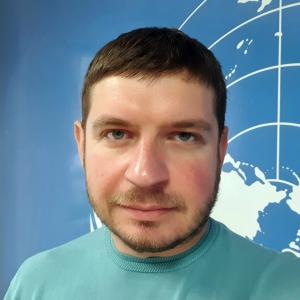How to enhance SDG financing at the focus of the annual UN Conference on SDGs
02 December 2021
* UN Annual Conference | Towards greater alignment of public and private financing with sustainable development
The situation regarding financing Sustainable Development Goal’s (SDG’s) related initiatives in North Macedonia and enhancing SDG Financing in the country, was the focus of today’s annual UN Conference held in Skopje. Representatives from government, the financial sector, the private sector, academia, the international community, and the UN family, discussed how various new developments in SDG Finance are being used in global markets and how these can be used in the overall development of the country.
“Today’s conference aims to open the discussion on SDG financing by taking stock of ongoing efforts in the country, shedding light on current global developments, and identifying next steps needed to continue redirecting existing financing towards sustainability and better quality of life for all,” said Rossana Dudziak, UN Resident Coordinator in North Macedonia. “In many countries in the world, as in North Macedonia, the financial resources are scarce, especially having in mind the socio-economic impact of COVID-19. Therefore to achieve these ambitions it is important to shift the existing financial flows, both public and private, towards carefully selected interventions that will accelerate the development in sustainable way and avoid investments that create negative externalities.”
“Through concrete measures to divert existing financing options towards SDGs, we can ensure decreased emissions of CO2 gasses, or improved health. We can secure increased economic growth and wellbeing for more people, says Fatmir Bytyqi, Deputy Prime Minister.
In North Macedonia, banks are increasingly focusing on sustainable finance, but much more can be done to ensure greater financing options, . Experiences regarding what works best vary across the globe, from countries and large corporations issuing SDG and green bonds and organising carbon emission trading, to banks and other financial institutions integrating SDGs in their investment decisions and adopting standards such as ESG and Responsible Banking Principles. From blended finance and other options to bring various financers to jointly finance sustainable development, to private sector reshaping their core business to be environmentally-, socially- and corporate governance- friendly.
“There is an increasing focus on the risk of climate change from central banks globally because climate change can affect the goals of the central banks. This year, the National Bank of the Republic of North Macedonia included green financing as one of the key strategic goals in its mid-term strategic plan. The National Bank conducted a survey showing that green credit lines represent only 2.5% of all credits issued, but with an increasing trend,” says Anita Angelovska Bezhoska, Governor of the National Bank of the Republic of North Macedonia.
For Naser Nuredini, Minister of Environment and Physical Planning, putting people and planet at the heart of our economic system is not only an ethical or political imperative, but also an economic and risk management strategy.
“The cost of inaction now exceeds the cost of action. The global threat of climate-related disasters, future pandemics, and other shocks have brought the development finance world to a tipping point. However, the adjustment of markets, policies and behaviours will require pro-active interventions by all actors along the investment chain,” says Nuredini.
He also informed that among others, there are two key aspects that our Government and the Ministry of Environment and Physical Planning are devoted to: consideration on possible legally binding carbon tax and self-sustainable waste management system.
„The plan for increased economic growth is focused towards investments in strategic priority areas such as green economy, digitalization, innovation and technological development, infrastructure, human capital and social cohesion, which we as a Government identified as key areas for investments towards greater economic growth, and which also match the SDG priorities. These areas are included in the Plan for enhanced economic growth, in which we determined instruments and clear steps for realizations of the projects that will allow its implementation. The goal is to increase public investments, while at the same time increasing the mobilization of funds from the private sector”, says Fatmir Bisimi, Minister of finance.
For Massimiliano Paolucci, World Bank Country Director, in addressing the consequences of the COVID-19 pandemic, the country should respond to long-term sustainability concerns by stimulating green investment and innovation, while at the same time striving to reduce emissions through environmental tax reforms and well-targeted green policies.
“There are some risks that policymakers in the country might face in the short run while managing the transition to a low carbon economy and thus the implementation of the green agenda should be done over time with a staged approach,” says Paolucci.
Marjan Petreski, professor at UACS and economist at Finance Think believes that the financial institutions and the private sector are key for achieving the Sustainable Development Goals and in securing its financing,
“A major part of the private financing comes from the banks through loan policies and in that segment, there are positive developments towards so called responsible banking, which means support and benefits in financing sustainable projects (projects that meet the standards of good environmental, social and corporate management, Petreski says.
A new report on the SDG Financing Landscape in the country was also presented at the conference. The report was commissioned by the United Nations Resident Coordinator Office in North Macedonia and conducted in the period July – November 2021, as part of the UN North Macedonia efforts to open dialogue and strengthen focus in the country on Financing the SDGs.


















